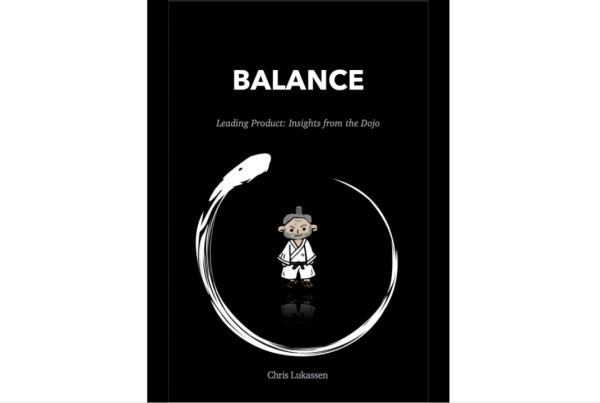I was asked recently to provide some thoughts on what could be done to attract more women to the investment industry and, furthermore, into leadership roles.
It’s a complicated question. I’m keenly interested in the matter and have tried to educate myself about it, but I will be the first one to acknowledge that that’s not, as a man, a very strong position from which to weigh in. The best that I can do, I believe, is to offer some avenues for reflection based on my own experience working in this industry for well over two decades.
——————————
I like to think that I’ve been a good husband and a good father. I have fond memories of seeing my children growing up and of our small family experiencing many happy moments together. Those memories are some of the dearest I hold. But when I am most honest with myself, I wonder.
The first ten years or so of my career are mostly a blur of long evenings at work, flights and airport lounges, and making excuses as to why I wouldn’t be home for dinner or why I’d be missing the children’s play at school. How many of my happy memories, I wonder, are the result of looking, after the fact, at family pictures taken by my wife while I was working late at the office, or away on yet another business trip?
It’s not easy to get ahead in this line of work and I have come to believe, over the years, that one of the main reasons why our industry fails to attract and retain women, and to promote more of them into senior roles, is that we put unreasonable demands on people; demands that are often incompatible with the realities of many women at some key stages of their lives. And for many, the fact that they love their work will even make things worse.
As I mentioned earlier, I am not an expert on any of this. I do believe however that women still bear the brunt of raising children and managing the household. I am married to a woman with a degree in criminology and another one in law who decided, twenty years ago, to stay at home to raise our children. I know how much work is involved in holding the home front and to put it plainly, I wouldn’t have had the career that I’ve had if it wasn’t for my wife’s contributions. And if I ask myself what I would have done if I had had to juggle home and career as many women do, I believe that perhaps I might have picked a different path for myself. One way or another, my life would have turned out quite differently.
Interestingly, I have three children in university including two daughters, one of which will be graduating in just a few months, and none of them has shown the slightest interest in following in my footsteps. Evidently, I have failed, in my own household, in making our industry attractive to young women. They remember.
Although much more needs to be done, I have fared better I think on the workfront. Of my eight direct reports, four are women. And when I attended our national retail sales conference recently, I was delighted to see so many young women amongst the two hundered or so people in attendance; women that their national sales leader — a woman herself — will lead and inspire and help to grow and thrive in our industry over the years to come.
One of the keys to attracting more women to our industry and retaining them over the long term, I have come to believe, is to make it possible for them, at different stages of their lives, to cope with the combined demands of their careers and their personal lives. Having learned from my own mistakes and experiences, I am now extremely sceptical of the view that people should be measured by the number of hours that they put in at work. As a result, I try to give people some control over their lives; to foster an environment where people don’t feel pressured to work constantly, as I felt I had to do myself when I first started in the industry:
- I encourage people to take full advantage of the flexibility that technology allows, such as working from home.
- I try to make people comfortable with managing their time and give them the flexibility to attend to personal or family matters during so-called “business hours”.
- I encourage people not to work on weekends and holidays. Specifically, I refrain from sending or responding to emails on evenings, weekends and holidays because if I did, I would be taking away other people’s right to disconnect.
- I encourage “no meeting Fridays” across my team and beyond, to give people an opportunity to think, focus, connect with others and be creative.
- I encourage people to pursue interests outside of the office and broadcast my own interests and pursuits — in my case judo — as a way to get across that it’s OK to have a life outside of work.
- Generally speaking, I try to create a safe and respectful environment that is welcoming of differences of all kinds: Styles, backgrounds, personalities, stages in life, beliefs, points of view, etc.
None of those measures, you will say, are specifically targeted at women. Indeed, they benefit all. But I suspect they have the potential to benefit women most if, as I stated earlier, women bear a disproportionate burden due to the demands that fall on their shoulders outside of work. I also believe that freeing up husbands, partners and fathers may be an effective if indirect way of supporting the women in their lives. I, for one, wish I had had that chance when I was in my thirties and I believe my wife would have benefited.
I understand that all of this is quite limited and I would not suggest that I have cracked the code by any stretch. I also acknowledge the possibility that some will read this article and be disappointed by how little I actually understand about the challenges that women face in our industry. But I do believe that putting unreasonable demands on people’s time — demands that translate into difficult choices between work and other aspects of their lives — has played a role in making our industry less appealing to women, and in limiting the opportunity for many of them to grow into the leadership roles in which they could contribute so effectively.



